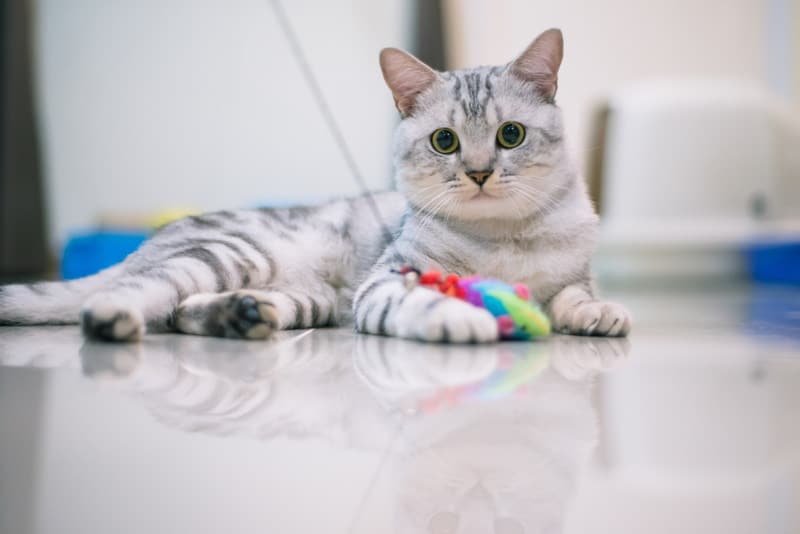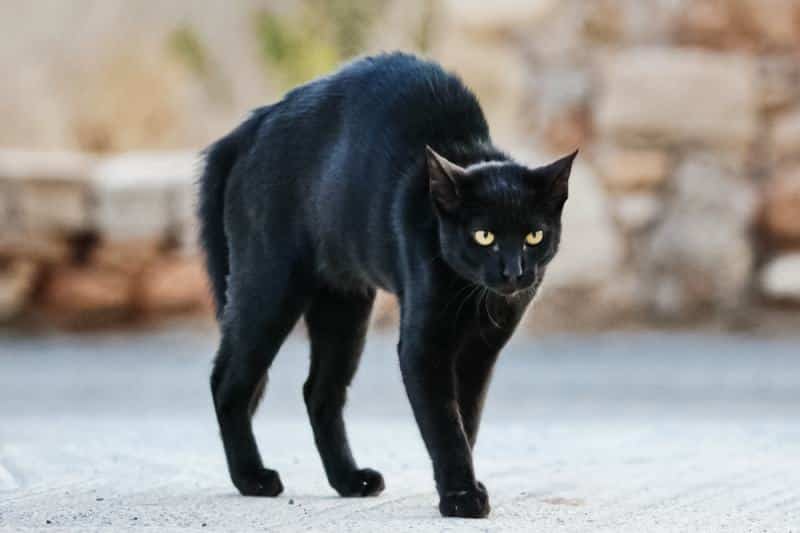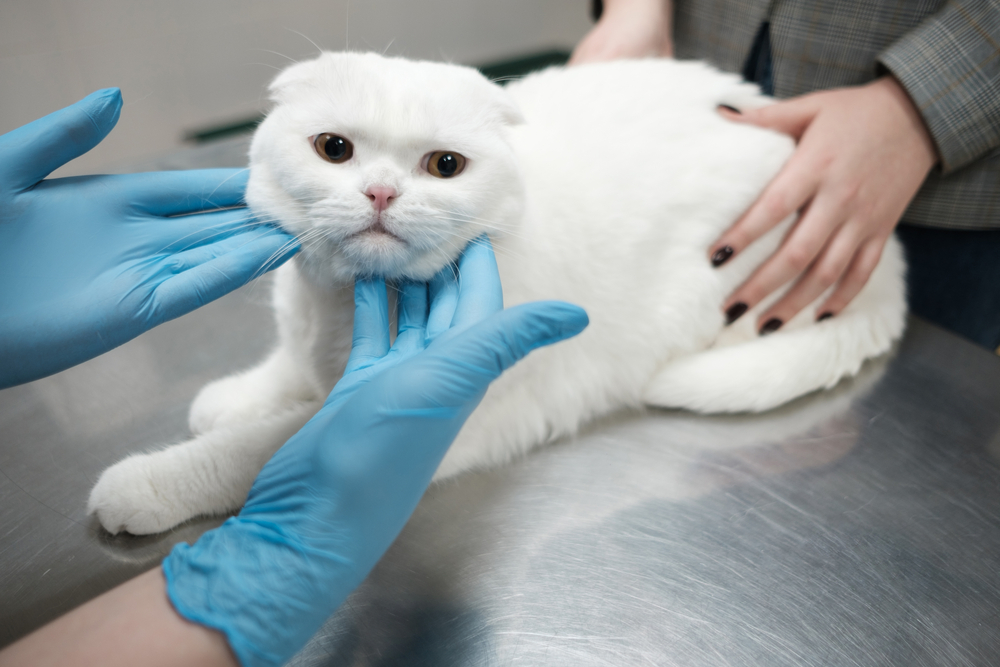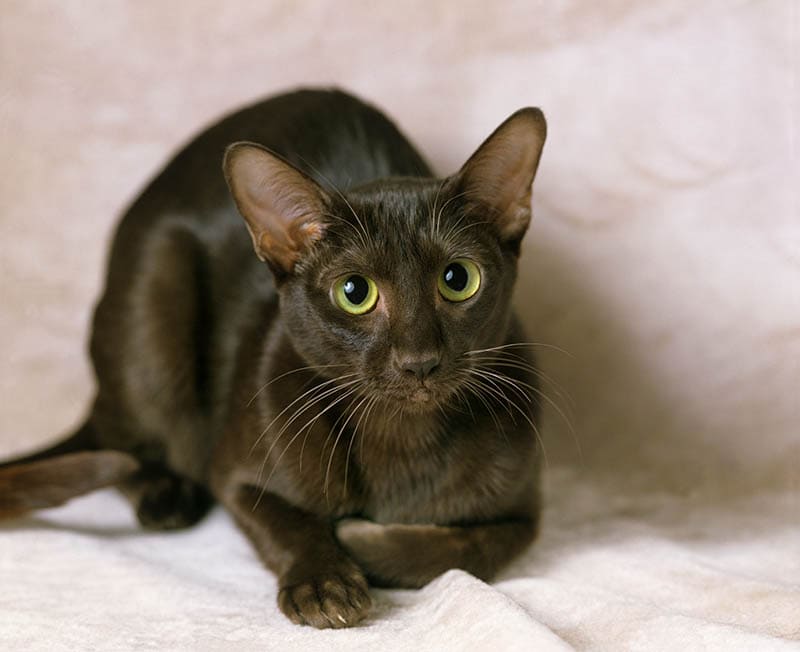If you’re a cat owner, you’ve probably noticed that your cat’s eyes sometimes get wide and dilated, like those of Puss in Boots from the “Shrek” movies. Although the big kitten eyes (a.k.a. dilated pupils) are normal in most situations, they can sometimes indicate a serious medical condition.
So, how do you know whether or not your cat’s dilated eyes are normal? Read on to learn more about the reasons behind the dilated pupils and when it’s necessary to seek veterinary attention.
The 5 Reasons Why Your Cat’s Eyes Are Dilated
1. Excitement & Stimulation
Cats’ pupils dilate when they experience excitement or stimulation, such as during playtime. When felines play and pounce, their pupils dilate to let in more light, similar to what would occur in a genuine hunting scenario.
If your cat’s eyes dilate during mealtime or when they’re anticipating their favorite treat, it’s also a natural response. However, if your cat is frightened, angry, or surprised by something, their pupils can suddenly dilate. But don’t worry; they will return to their normal shape once the intense emotion has subsided.

2. Low-Light Conditions
Cats have the unique ability to see in low-light conditions. Their pupils naturally dilate in dimly lit areas, enabling more light to enter their eyes. That is why your cat’s eyes appear wider in the dark. The dilation of the pupils is entirely normal and helps the cat see better in the dark.
In total darkness, cats can’t see anything, just like humans! But even a tiny source of light, like a candle or moonlight, will help them find their way in the dark. Expanding and reducing the amount of light entering their eyes is vital for cats. Otherwise, they would not be the formidable nocturnal hunters that they are.
3. Fear or Anxiety
When a cat becomes frightened or anxious, their pupils dilate as a part of their natural “fight or flight” response. However, if your cat’s eyes are frequently dilated, it may be wise to consult a veterinarian to ensure there are no underlying health or behavioral concerns.

4. Pain
Dilated pupils in cats can be a sign of pain, even if the discomfort is mild. It’s essential to watch for other indications of pain, such as aggression or hiding, and promptly take your cat to see a vet if you suspect they’re in distress.
5. Medical Conditions
It’s not normal for your cat to have permanently dilated eyes. Health conditions that can cause your cat’s pupils to be dilated include feline dysautonomia (also known as Key-Gaskell syndrome) and hypertension. Your cat can show other clinical signs, such as weight loss or gain, sudden loss of appetite, excessive thirst, difficulty urinating, vomiting, and diarrhea.
Dilated pupils can also be caused by poisoning from toxic plants, medication, or venomous animal bites. If your cat has unevenly sized pupils (one is dilated and the other is not), it could be a sign of a serious medical issue.
Conditions such as retinal disease, cancer, skull injuries, glaucoma, or neurological disease may be the underlying cause. Therefore, taking your cat to a veterinary clinic immediately is crucial if you observe this condition (called anisocoria).


What to Do If You’re Worried About Your Cat’s Dilated Eyes
Unless your cat displays serious signs of illness or injuries or the dilation is prolonged, it’s more likely that excitement, playfulness, low lighting conditions, or temporary fear caused their dilated pupils.
It’s normal and healthy for your feline’s eyes to change and dilate throughout the day, but if you suspect that your cat’s dilated eyes result from a health problem, it’s best to contact your veterinary team without delay.
Conclusion
A cat’s pupils change depending on their mood and the lighting. If you catch your cat staring at you with big, dilated eyes, it’s usually a sign that something has caught their attention. However, if you notice that their pupils are consistently and excessively dilated, it’s vital to seek advice from a veterinarian to ensure your cat is healthy.
Featured Image Credit: slowmotiongli, Shutterstock










